LATEST INSIGHTS
Your Present Location: LATEST INSIGHTS-
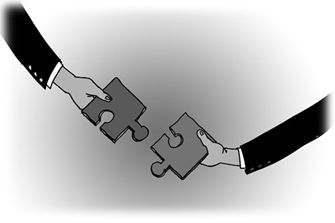
China, Japan must push financial cooperation
Financial cooperation between China and Japan has seen unprecedented changes recently, which is a positive sign amid the current global trend toward unilateralism. It also raises the question about whether the bilateral financial cooperation is being forged by two sides coming to each other's aid in a time of crisis despite old grievances and enmities, or if it is a result of long-term planning and foresight.
2018-11-01 -
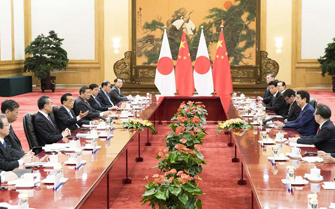
Wang Yanhang: China, Japan must push financial cooperation
Financial cooperation between China and Japan has seen unprecedented changes recently, which is a positive sign amid the current global trend toward unilateralism. It also raises the question about whether the bilateral financial cooperation is being forged by two sides coming to each other's aid in a time of crisis despite old grievances and enmities, or if it is a result of long-term planning and foresight.
2018-11-01 -

US high-tech ban on all Chinese firms slammed
The US' decision to impose export restrictions on a Chinese chipmaker has slammed by Chinese government on Tuesday, and Chinese experts said that the decision ignores basic rules and principles where international cooperation is involved.
2018-10-31 -
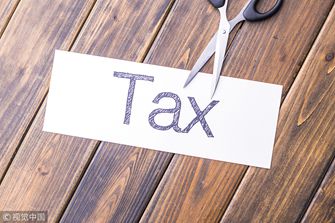
China eyes broad-based tax cuts to shore up economy
China has announced a new round of tax cuts in a bid to shore up its economy amid external uncertainties.Chinese authorities on Saturday unveiled draft temporary measures on special additional deductions from taxable personal incomes, as part of a broader overhaul of the individual income tax law.
2018-10-30 -
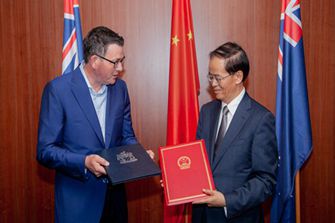
Australian state of Victoria signs MoU with China on Belt & Road
Victoria became the first Australian state to sign a memorandum of understanding (MoU) with China's economic planning authority on the Belt and Road initiative following a signing ceremony in Victoria's capital city Melbourne, the Chinese Embassy in Australia said Friday.
2018-10-30 -
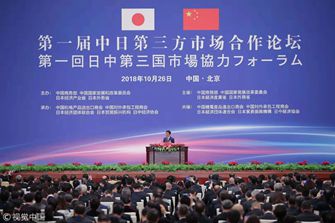
Abe’s trip helps push Sino-Japanese ties to new stage
Japanese Prime Minister Shinzo Abe returned to Tokyo on October 27 after a three-day official visit to China. Abe's trip to Beijing is the first by a Japanese prime minister since 2011 when Yoshihiko Noda paid an official visit to the country.
2018-10-30 -
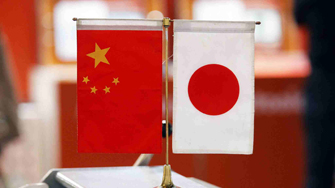
Wang Yiwei: Will Japan and China cooperate on the BRI?
Japanese Prime Minister Shinzo Abe is paying an official visit to China and is likely to express a positive attitude on the Belt and Road Initiative (BRI). Since Liberal Democratic Party Secretary-General Toshihiro Nikai came to China to attend the Belt and Road Forum for International Cooperation as Japan's representative last May, Japan has been positive on the BRI.
2018-10-29 -

Synagogue killings show ‘divided US’
At least 11 people were killed and six were injured after a gunman opened fire at a synagogue in Pittsburgh on Saturday, reflecting the escalation of social division in the US before the mid-term election, according to a Chinese expert.
2018-10-29 -
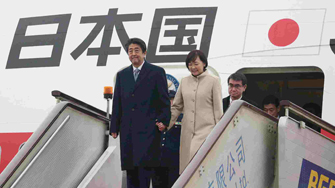
Guan Zhaoyu: Sino-Japanese relations to warm up by "B&R" pragmatic cooperation
Japanese Prime Minister Shinzo Abe pay an official visit to China from October 25 to 27, seven years after the Yoshihiko Noda's visit in 2011 and also the Japanese Prime Minister's official visit to China after seven years. According to previous reports, the topics under discussion between the two sides in this visit will be very broad. However, the author believes that the international cooperation between the “Belt and Road” and the third-party market is still worth paying close attention to.
2018-10-29 -
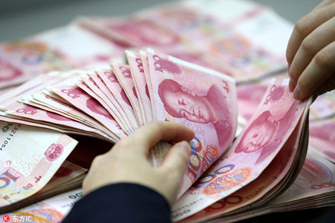
Financing tool to help private firms
China has decided to set up a new bond financing support vehicle to help finance private enterprises and ease their dilemma in getting loans, a move that experts said would stabilize market expectations and confidence.
2018-10-29 -
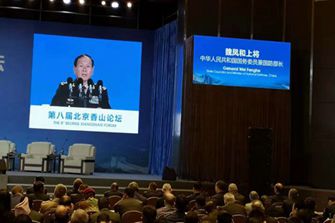
Defense minister refutes US at Beijing Xiangshan Forum
The 8th Beijing Xiangshan Forum opened on Thursday and Chinese President Xi Jinping sent a congratulatory letter to the opening ceremony of the forum to express China's commitment to enhance strategic mutual trust and security cooperation with nations around the world.
2018-10-26 -
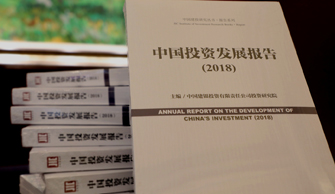
He Weiwen: China Outstrips The US As World’s Largest FDI Destination
The latest world investment report by UNCTAD shows that total world foreign direct investment (FDI) fell drastically to $470 billion during the first half of 2018, 41% down from its total of $794 billion one year ago.
2018-10-26 -
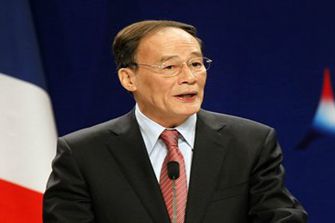
China and Middle East embrace new opportunities to broaden cooperation
China and the Middle East will embrace new opportunities to broaden economic and high-tech cooperation, Chinese commentators predicted after Chinese Vice President Wang Qishan started his four-country tour of the Middle East on Monday.
2018-10-26 -
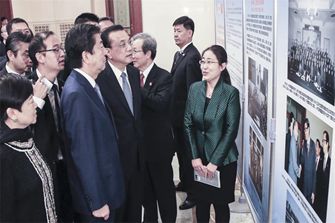
Hiyoshi Hidematsu and Guan Zhaoyu: Cooperation will keep China-Japan relations on track
Japan’s Prime Minister Shinzo Abe arrived in Beijing on Thursday to start his three-day official visit to China, which is the first official trip to China by a Japanese prime minister in seven years. The last visit was by former Democratic Party Prime Minister Noda Yoshihiko in December 2011.
2018-10-26 -
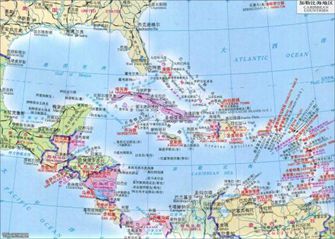
Ding Gang: Can China’s footprint in the Caribbean last?
I recently visited the Dominican Republic as part of a Chinese media delegation. In the Caribbean island country nearly 14,000 kilometers from China, the enthusiasm of locals to develop relations with China was palpable.
2018-10-25 -
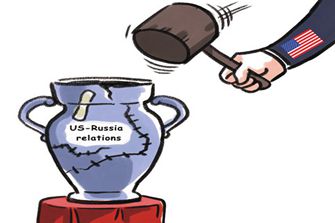
Zhao Minghao: INF withdrawal indicates disruption of global arms control systems
When it comes to foreign policy, US President Donald Trump makes himself look like Ronald Reagan, the president who helped the US win the Cold War. Many decision-makers in the White House also believe in the Reagan Doctrine. However, Trump recently announced that the US will pull out of the Intermediate-range Nuclear Forces (INF) treaty - the most important legacy of the Reagan administration. The treaty was signed when then Soviet leader Mikhail Gorbachev visited the US in December 1987.
2018-10-25 -
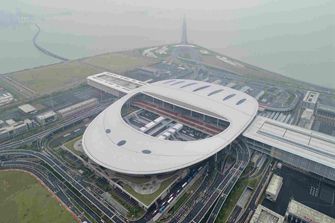
Liu Zhiqin: Hong Kong-Zhuhai-Macao Bridge leads to a brighter future
The Hong Kong-Zhuhai-Macao Bridge (HZMB), the world's longest sea-crossing bridge has been officially opened to traffic on Wednesday, and the passengers already cannot wait to cross the bridge.
2018-10-25 -

China steps up helping private firms out of financing difficulties
Chinese authorities have decided to renew efforts to assist private companies facing financing difficulties, given the importance of those firms to the economy and the job market.
2018-10-24 -
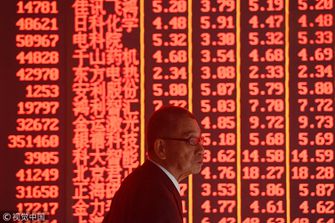
Stocks rise on expected policy plans
Chinese stocks surged on Monday as investor confidence rebounded due to the expectation of further measures from authorities to stabilize the market, officials and researchers said.
2018-10-23 -

William Jones: Decaying infrastructure, the source of US 'decline'
The decline of the US infrastructure in real terms is obvious to anyone with eyes to see. Our roads are filled with potholes, our railroads are slow and uncomfortable, (often dangerous), and our bridges are collapsing. But the cause is not, as President Donald Trump has been persuaded to believe, some "trade deficit" with China.
2018-10-23
























































































 京公网安备 11010802037854号
京公网安备 11010802037854号





